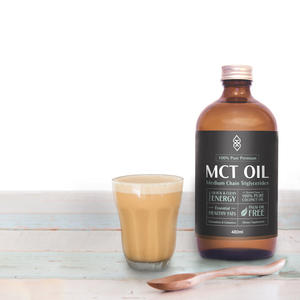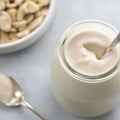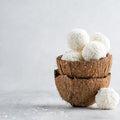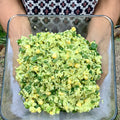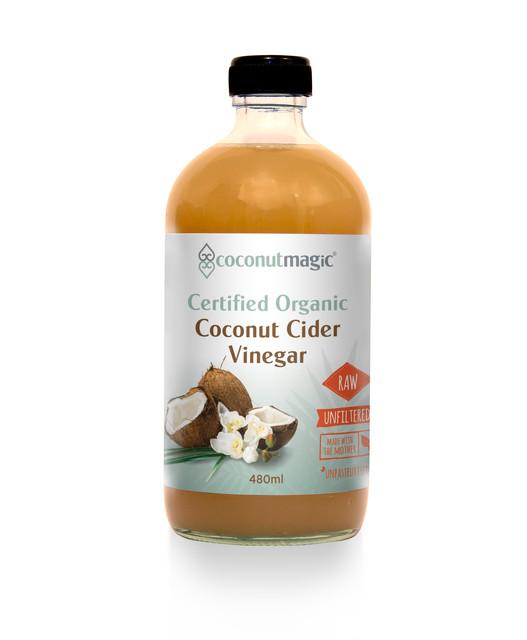One of the lowest glycemic index sweeteners on the market is the coconut nectar derived from the coconut trees. It is highly nutritious, ecologically beneficial and provides sustained energy with an inspired taste.
Coconut flower nectar is the sap collected from the flower blossom of the coconut palm tree. The coconut farmer climbs the tree in the early morning and collects the blossom nectar by slicing the flower. This allows the nectar to flow. The nectar is then watered down and boiled into a syrup consistency. The process is minimal and nothing artificial is added.
At the time of collection the fructose levels of the nectar is approx. 1.5%. By the end of the process it is around 10%. This is still much lower than the 80 or 90% levels of most other sweeteners.
The sugar is made by crystallization of the coconut flower nectar. The nutritional profile, and glycemic index of coconut sugar and coconut nectar stay the same. The consistency and the taste however are quite different.
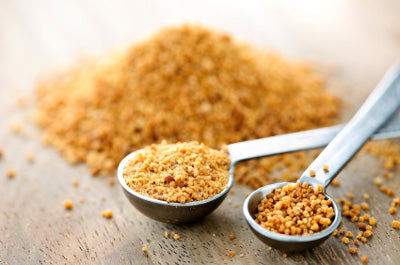
The nutrient-rich coconut sap that comes out of the tree is naturally abundant in 17 Amino Acids, the building blocks of protein. It has broad-spectrum B Vitamins, especially rich in Inositol, known for its effectiveness on depression, high cholesterol, inflammation, and diabetes, Vitamin C, Minerals, high in Potassium, essential for electrolyte balance, regulating high blood pressure, and sugar metabolism as well as FOS (a prebiotic that assists digestive health).
Coconut sugar and coconut nectar both have an extremely low glycemic index (GI). It is a GI of only 35. A low GI is important for everyone, especially diabetics. It is also helpful for weight loss.
The Food and Agricultural Organization (FAO) has reported that coconut palm sweeteners are the single most sustainable sweetener in the world. Coconut palms grow in diverse, wildlife supportive, agro-ecosystems. They can help restore damaged soils and require little water for production. Coconut palms produce an average of 50-75% more sugar per acre than sugar cane.
Coconut sugar has long been a staple for South East Asian culinary heritage and herbal medicine. It has not been commercialized yet so it is still farmed by small farms as opposed to gigantic corporations.
Coconut tree sap produces a multitude of delicious products, including our Coconut Vinegar, Coconut Aminos Seasoning Sauce, Coconut Nectar, and Coconut Crystals, all made through sustainable methods of either aging the sap for up to 1 year, or evaporating it at low temperature after it is collected.
Neither coconut nectar or coconut sugar is technically raw. However both have become favored sweeteners within the raw food communities due to their lovely taste, low GI levels and impressive nutritional profiles compared to
